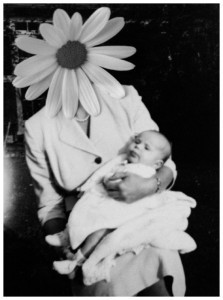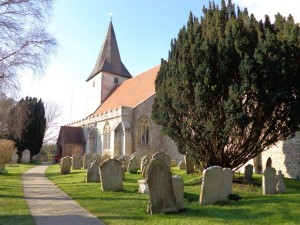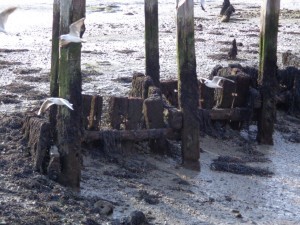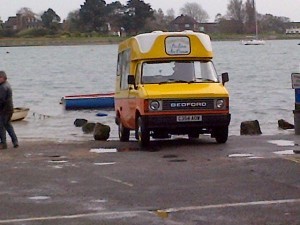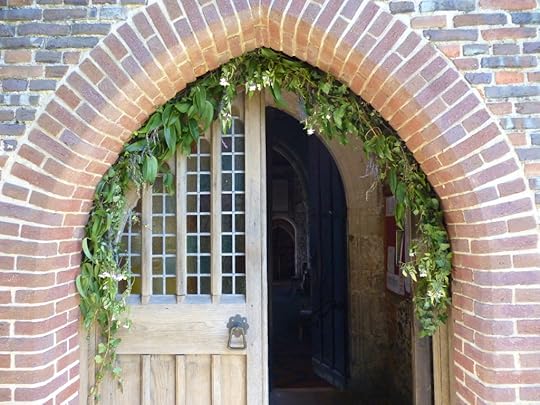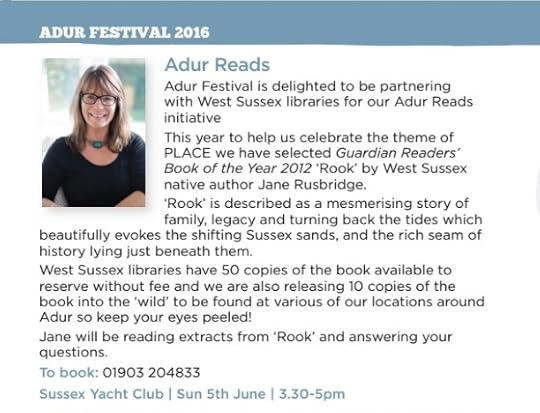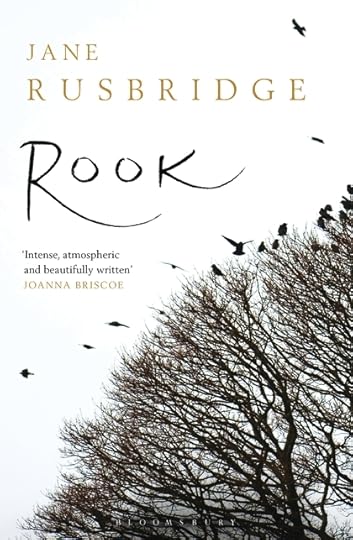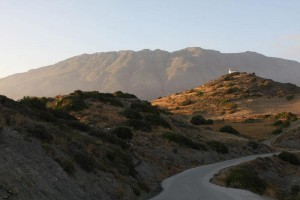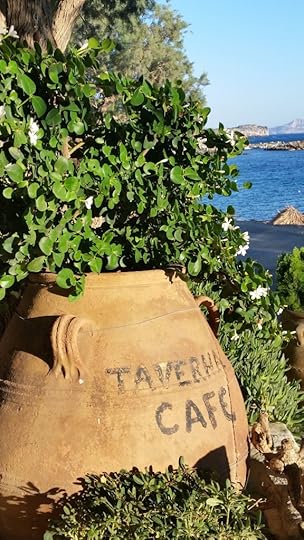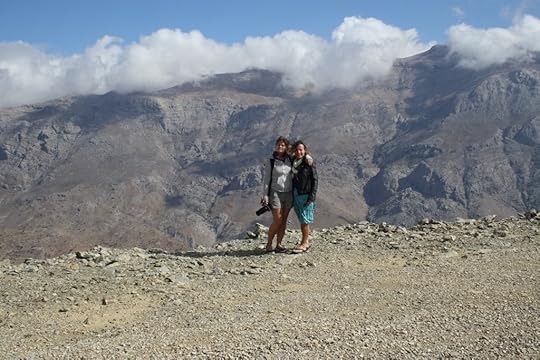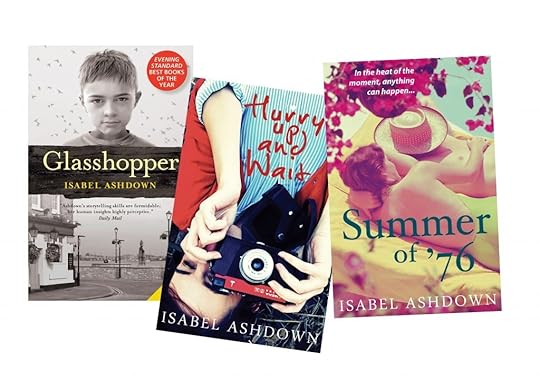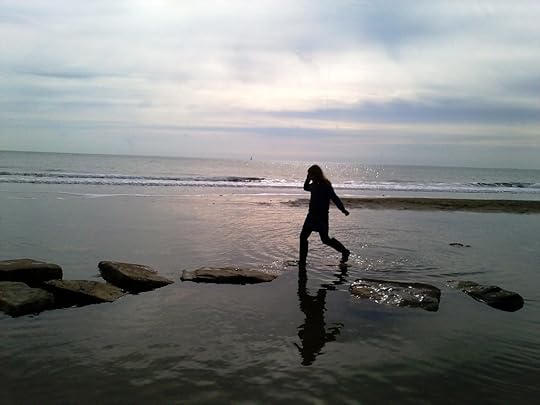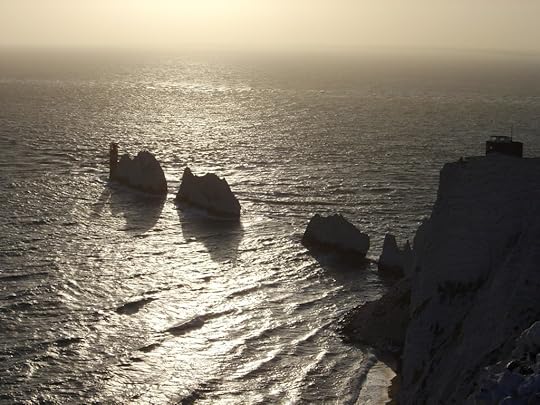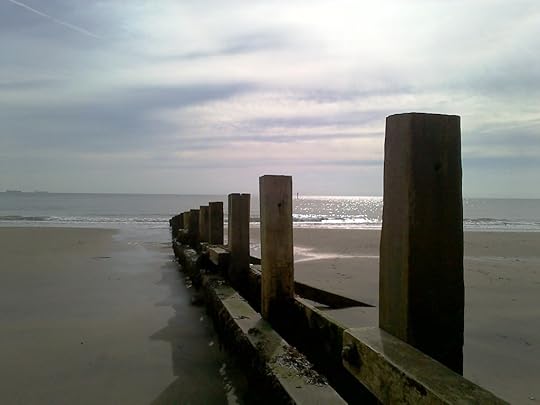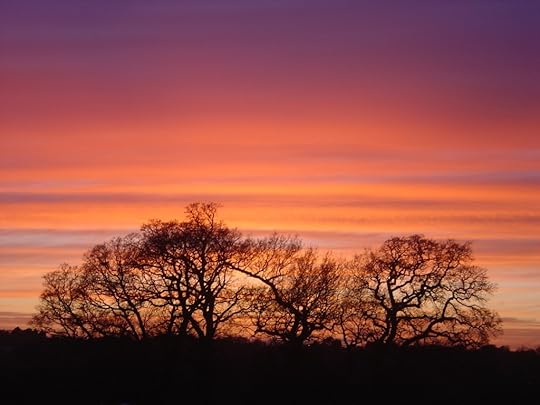Jane Rusbridge's Blog
March 3, 2017
Fishbourne Loves Books 2017: Sussex Mud
I’m delighted to be supporting Fishbourne Loves Books fundraising event on Saturday 25th March along with Simon Brett, Max Egremont and Caroline Lawrence. You can find all the details of the day’s events here.
I’ll be reading from Rook and talking about mud, myths and the mystery which surrounds Harold II’s burial place. Later in the day I’ll be signing books. Do come and join us!
Proceeds will be divided equally between the St Wilfrid’s Hospice DREAMBUILDING Project and essential repairs of the ancient church at Fishbourne.
Tickets: £5 per event or £15 for a day ticket. Available here
Time: 10.30-17.30
Place: St Peter and St Mary Church, Fishbourne
A piece about the impact cancer had on me as a child: Breast Cancer: The Dying Days
October 8, 2016
ROOK : One of the BBC’s ‘Books That Made Britain’
I’m thrilled that ROOK is one of BBC 1’s #BooksThatMadeBritain, a series of regional documentaries which are part of their #LoveToRead campaign.

I’ll be on BBC One, 15.45pm on Sunday 16th October along with Kate Mosse, talking about the myths, mysteries and Sussex landscapes which inspired the book.
Filming took place in Bosham and on the sand dunes at East Head, so mud will be mentioned, and the shifting sand dunes of West Wittering beach.
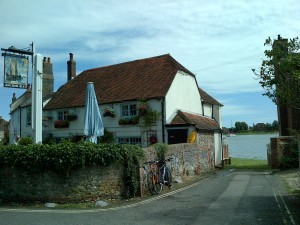 Look out for the famous ice cream van, a glimpse of The Anchor Bleu and the beautiful ancient church at Bosham.
Look out for the famous ice cream van, a glimpse of The Anchor Bleu and the beautiful ancient church at Bosham.
Inside the church is a memorial stone dedicated to the memory of a daughter of King Canute who, as tradition has it, drowned in the millstream.
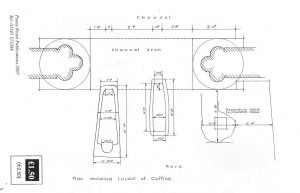
Diagram taken from the pamphlet ‘Is Harold II buried at Bosham Church’ written by John Pollock
But who is buried in the other grave, in a stone coffin beneath the chancel arch?
You’ll be able to watch the programme, and others in the series, here.
ROOK : One of BBC One’s ‘Books That Made Britain’
I’m thrilled that ROOK has been chosen as one of BBC One’s #BooksThatMadeBritain, a series of regional documentaries which are part of their #LoveToRead campaign.

I’ll be on BBC One, 15.45pm on Sunday 16th October along with Kate Mosse.
Filming took place in beautiful Bosham and on the sand dunes at East Head.
And I’ll be talking about the myths, mysteries and Sussex landscapes which inspired the book. I’ll probably also mention the mud!
April 18, 2016
Adur Reads 2016: ROOK by Jane Rusbridge
I’m delighted to announce that ROOK has been chosen as the ADUR READ for 2016.
On June 5th I’ll be reading from & answering questions about ROOK at SUSSEX YACHT CLUB, 3.30-5pm. It would be lovely to see you there! This is a FREE event but please phone 01903 204833 to reserve your place.
‘what marks out Rusbridge’s novel is the passion with which she writes about her native Sussex and its more ancient landscapes’ The Independent
November 16, 2015
Jane Rusbridge: book signing at Petworth Craft and Gift Christmas Market
I’ll be book signing alongside fellow novelists Isabel Ashdown and Gabrielle Kimm at the Christmas Gift Market in Petworth’s historic Leconfield Hall on Saturday 28th November – so why not come along and meet the three of us? There will many arts and crafts stalls, and a signed copy of one of our books with a personal dedication to someone you know might make a great Christmas gift – we’ll even wrap it for you!
Time: 10-4pm Saturday 28th November Place: Leconfield Hall, Petworth Entry: FREE
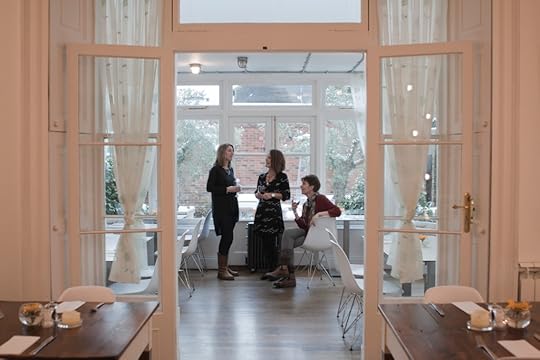
Isabel Ashdown, Gabrielle Kimm and Jane Rusbridge
November 11, 2015
‘Reading the South’ – Arts Council funded project
I’m very much looking forward to running a series of FREE writing workshops for Reading the South, a major Arts Council project run in collaboration with East and West Sussex libraries encouraging people to explore what the south means to them. Twelve authors who live and work in the South have been chosen to take part in various events in libraries across East and West Sussex. You can read all about the project and the authors inovlved on the Reading the South website where the events are listed.
In my workshops, we’ll be thinking about ‘sense of place’ – one of my favourite preoccupations – and how we are shaped by the landscapes we love. Drawing on our experiences of living and working in the south; we’ll talk, write, exercise our imaginations and discover ‘the astonishments on our doorsteps’ (Robert Macfarlane).
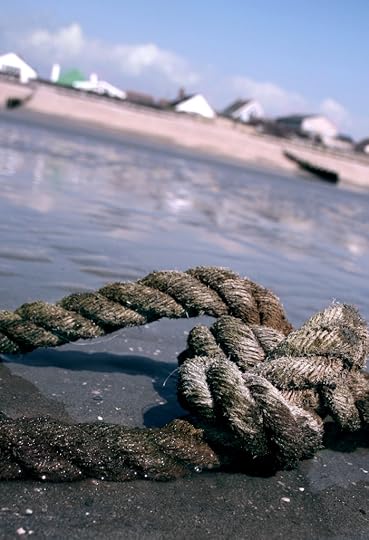
Wittering beach/ Photo credit Natalie Miller
My sessions are for writers of all levels and readers with a sense of adventure. They will be loosely themed as follows:
1: Friday 13th November, 1-3pm: ‘Sussex by the Sea’ – flotsam & jetsam; memories, emotion & place
2: Friday 20th November, 3-5pm: ‘Forests, Fields & Footpaths’ – magic, myths & legends
3: Friday 27th November, 1-3pm: ‘Fire & Stories’ – historical, local or personal?
Do join us! You can book by phoning Midhurst library on 01730 716671 or email midhurst.library@westsussex.gov.uk
UPDATE: The workshops are now fully booked but you can contact Midhurst library to have your name added to the waiting list, or see if there are any other Reading the South events near you.
Reading the South: writing workshops with Sussex authors
I’m very much looking forward to running a series of FREE writing workshops for Reading the South, a major Arts Council project run in collaboration with East and West Sussex libraries encouraging people to explore what the south means to them. Twelve authors who live and work in the South have been chosen to take part in various events in libraries across East and West Sussex. You can read all about the project and the authors inovlved on the Reading the South website where the events are listed.
In my workshops, we’ll be thinking about ‘sense of place’ – one of my favourite preoccupations – and how we are shaped by the landscapes we love. Drawing on our experiences of living and working in the south; we’ll talk, write, exercise our imaginations and discover ‘the astonishments on our doorsteps’ (Robert Macfarlane).

Wittering beach/ Photo credit Natalie Miller
My sessions are for writers of all levels and readers with a sense of adventure. They will be loosely themed as follows:
1: Friday 13th November, 1-3pm: ‘Sussex by the Sea’ – flotsam & jetsam; memories, emotion & place
2: Friday 20th November, 3-5pm: ‘Forests, Fields & Footpaths’ – magic, myths & legends
3: Friday 27th November, 1-3pm: ‘Fire & Stories’ – historical, local or personal?
Do join us! You can book by phoning Midhurst library on 01730 716671 or email midhurst.library@westsussex.gov.uk
September 11, 2015
‘Reading the South': a project which will explore senses of place and identity in Sussex
What does ‘the South’ mean to you? How do the landscapes and places we love shape the people we are?
I’m delighted to have been invited, along with 11 other authors who live or write about the south of England, to take part in ‘Reading the South’ , a major literary development campaign which will explore senses of place and identity in Sussex. You can find out more about the events planned, the authors involved and the books we’ve written on the Reading the South website. 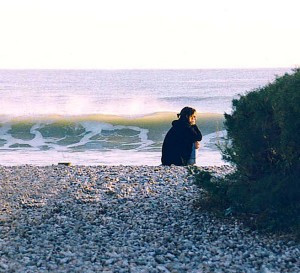
‘
July 16, 2015
Crete: A Retreat You Can’t Beat
Exhausted? Well there’s this place I know, one which might help…
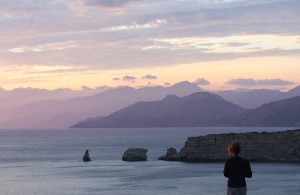
Triopetra rocks, south Crete
More than fifteen years ago now, we went to the North coast of Crete on a package tour. One day we hired a car and stopped at a petrol station to fill up. When the Greek guy on the pumps asked us where we were going, I held up our tourist map and pointed to a beach on the south coast recommended by a guide at the hotel. He took the map from my hands, whipped a biro from behind his ear and drew a blue wiggle where the map was completely blank, just south of Spili.
‘Go here,’ he said, jabbing with his finger. ‘This is where the Greeks go.’
And so we discovered, by chance, a stretch of coast just south of Spili to which we have returned at least once every year.
Why?
This is why: we return because we fell in love with rugged mountains, thyme, sage and carob trees clinging to rocky slopes which give way – here and there – to the gravelly scoop of an isolated beach; we fell in love with air which smells of sunbaked earth, aromatic with mountain herbs, and with the night skies thick with stars. We fell in love with remote tavernas nestled at the end of dirt tracks or tucked into the shelter of a craggy corner, perhaps built around an ancient carob storehouse or a stone fisherman’s hut, buildings often owned by the same local family for generations. We fell in love with the place and the people we met there.
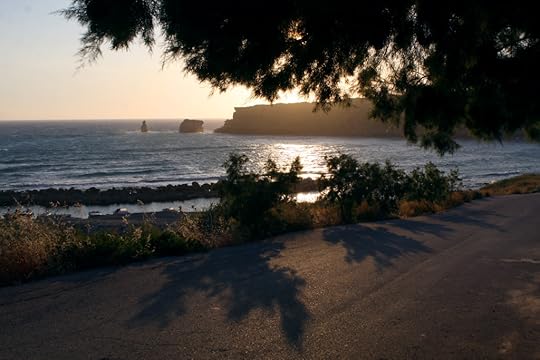
Akoumia beach, Apanemia taverna
This is Akoumia beach, to the east of the Triopetra rocks which provide the striking landmark for this stretch of coast. That first day, we were the only people on this beach; the only people at Apanemia taverna for lunch. The taverna had recently opened, a new venture for the Koumandakis family. Stelios and his mother fed us with delicious octopus in red wine sauce and rabbit stifado, brought us chocolate biscuit cake to taste and gave us raki made from their own grapes. They welcomed us as if we were friends, and we were charmed.
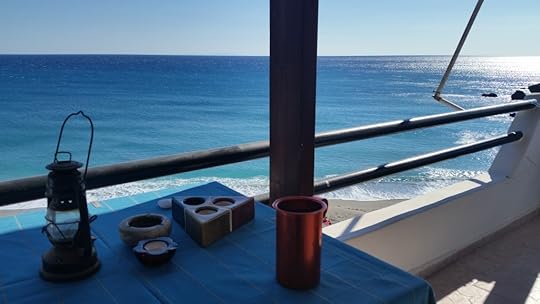
Room 12 balcony, Ligres taverna
Kindness and generosity are what Cretans in these mountain villages and tavernas give to strangers, always offering food or drink, pressing gifts of their own wine and homegrown produce into our hands. Even Rula, the lady who owns the supermarket where we often shop in Spili, about 25 minutes drive from the coast.
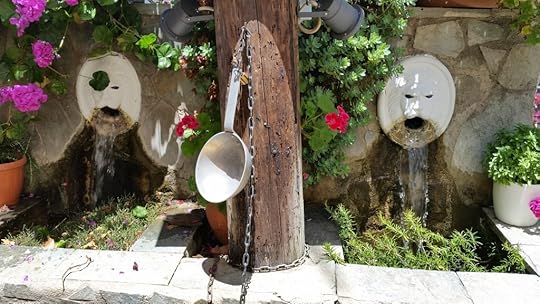
Spili, Fabrica cafe
Since that first drive down to the south coast, we’ve often headed straight for Trioptera from the airport in Heraklion. Once there, we read, swim, read, wander along the empty beaches, eat, read… You get the picture. We also explore the dirt tracks up the mountain or along the coast and get lost. We wander around remote mountain villages and drink in their kafeneons. Lately we have been out of season, in January, March, November, and driven to the east and west as well as the south, armed with history books and decent maps.
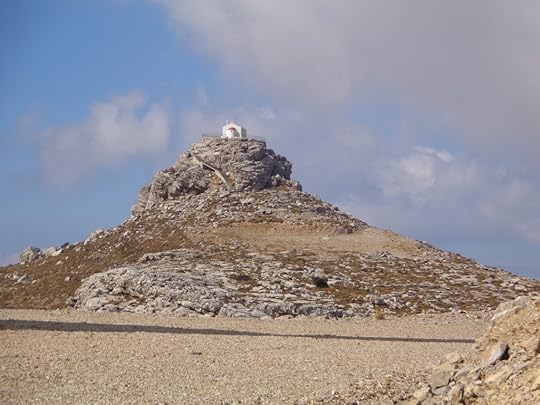
Akoumia church, Mount Sideratos
Many magical places are close by, places like Akoumia church, built by the villagers right on the top of the mountain. There are the narrow backstreets of Spili and the fertile Amari valley where we once saw a golden eagle swoop down onto its prey in a field close to us. A little further away you’ll find picturesque Rethymno with its Venetian harbour and fortress, the Minoan Palace at Phaestos and the Roman cemetry at Matala, where hippies lived in the 60s. Over the years more and more people have ‘discovered’ the joys of this area of the south coast. As well as the Greeks who flock there in August, in the quieter months you might meet Belgian, French, German, Austrian and a few other British tourists. Many return, as we do, year after year.
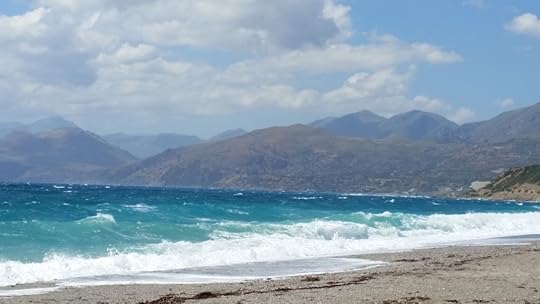
Triopetra long beach in Spring
Think you might want a trip out there?
Here are my favourite places to use as a base for explorations:
Apanemia Taverna – number one on the list – run by the Stelios and his wife Georgia. Here, you sleep to the sound of the sea, within a few steps of the beach . . .
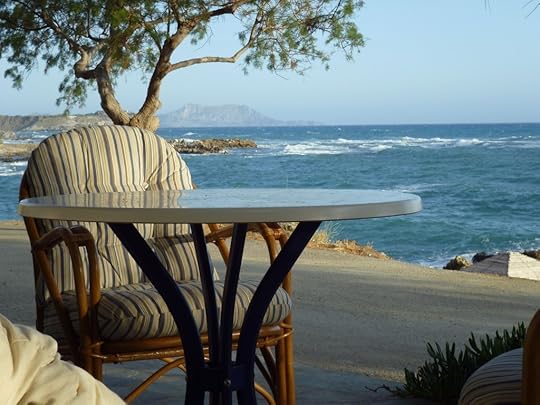
Apanemia taverna
Agia Fotini taverna with its turquoise shutters and tables is so close to the sea that, on a windy day, your food is seasoned with salt spray. They have a lively Facebook page and you can read a Guardian article with more details here.
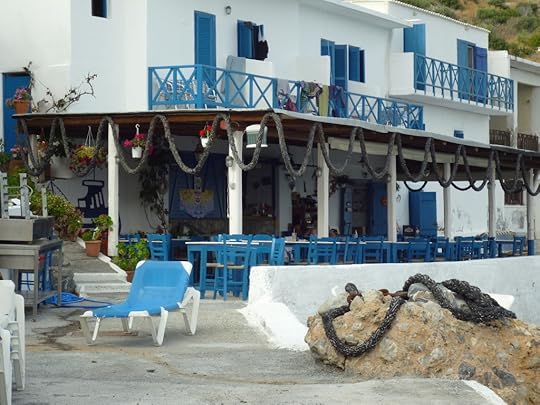
Agia Fotia taverna
Ligres : with its lush river valley and terraced taverna looking down over a long, empty beach.
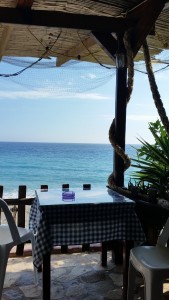
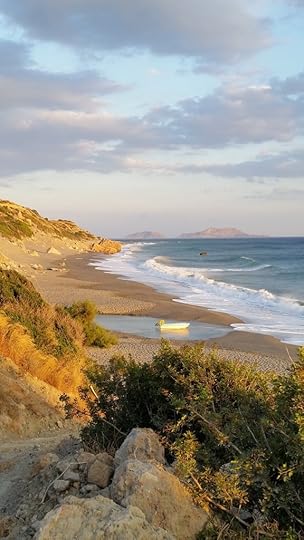 Ligres taverna
Ligres taverna
The tavernas at Apanemia, Ligres and Agia Fotini are all family-run and very friendly, serving delicious, traditional Greek food. All three have just a few rooms.
If you fancy self-catering instead there’s Agia Paraskevi, a tiny village up in the mountains where you can rent a restored stone house with view s of the distant sea below while you listen to goat bells on the wind. Agia Paraskevi (which means Holy Friday) was featured in the Sunday Times article “Beat a path to the heart of secret Crete“
We’ve stayed here, in Agyro’s House, more than once.
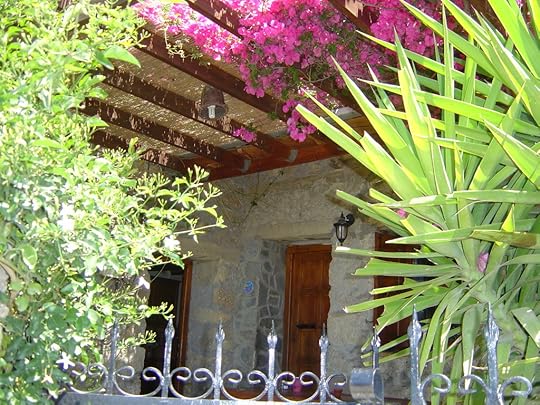
Between the village of Akoumia and the beach at Triopetra are the well equipped Paterakis Studios , great if you like to self-cater and prefer a more spacious room. And here, there’s also a swimming pool. And the beautiful Notos Apartments, within 20 minutes walk of the beach.
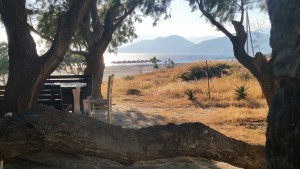
Triopetra long beach Apothiki taverna
For accommodation all year round in this part of Crete, you can stay in Spili, a traditional village in the foothills of Mount Vorizi. l Polymia Villa , a restored house in the old part of the village, perfect for groups of friends and families. At Heracles , also in Spili, you’ll find rooms with the most comfortable beds and wake to a delicious breakfast in the morning. Heracles is very popular with walkers in Spring and Autumn.
A friend recently enjoyed 3 weeks holiday in this part of Crete, staying in Agia Fotini. She came home and announced on facebook: ‘Crete is good for the soul’. That pretty much sums it up.
With thanks to Nat Miller for all the best photos here. If you’d like to use any, please run it past us first via the contact form on this website. Thank you!
July 18, 2014
PIECE on PLACE: Big Secrets in Small Places by Isabel Ashdown
 July’s Piece on Place comes from Isabel Ashdown, author of three, highly acclaimed novels: Glasshopper, Hurry Up and Wait and Summer of ’76. She is currently Writer in Residence at the University of Brighton.
July’s Piece on Place comes from Isabel Ashdown, author of three, highly acclaimed novels: Glasshopper, Hurry Up and Wait and Summer of ’76. She is currently Writer in Residence at the University of Brighton.
Isabel was the 2008 winner of the Mail on Sunday Novel Competition, judged by Fay Weldon, Michael Ridpath and the late Sir John Mortimer, who described her work as “magnificent – made every word work and left the reader anxious to read on.”
‘Ashdown handles big themes and period details with heart’
– The Simple Things magazine
Glamour magazine describes Isabel’s latest novel, Summer of ’76, (which I loved) as “A fabulous coming-of-age novel that’s saturated in ’70s nostalgia”. I’m delighted that Isabel has agreed to share the inspirations behind the setting for this novel.
Now, over to Isabel:
“Little islands are all large prisons:
one cannot look at the sea without wishing for the wings of a swallow”
- Sir Richard Francis Burton, explorer
As a writer – and as a reader – I’ve always had a preoccupation with the idea of the outsider, and of the large dramas that play out in small places. After all, who hasn’t, at some point, felt like the outsider, or felt trapped in some way? I think we’re interested in everyday stories of life because we can all relate to them on some level – and in many ways, small communities offer a concentrated backdrop against which these stories can show themselves.
I was born in London, but within a few months the family had moved to a small seaside town on the South coast, where I spent the first sixteen years of my life. As a youngster, it seemed a wonderful existence, to live a stone’s throw from the beach, to know the name of every child in my school, to know there was a friend willing to play on every corner. But as adolescence overtakes the innocence of infancy, small towns, like small islands, can become claustrophobic hotbeds of discontent – and for many, places to escape from. Gradually I developed the unnerving suspicion that nothing went unnoticed, that somehow everyone had an eye on each other’s business, and as a result I yearned for the anonymity of ‘other places’.
My latest novel Summer of ’76 tells the story of a scandal in a small community, and the subsequent effect of family revelations on 17-year-old Luke during the ceaseless heatwave of 1976. In part, the idea emerged from my growing fascination with the history of that year. It was the legendary drought summer of the mid-1970s, recollections of which are amongst my strongest early memories. My parents were both teachers, and the holidays felt endless and free, with no-one in the house having to rise for work or school. To escape the heat, we’d walk barefoot to the beach, where we’d find other decamped villagers – coconut-oiled mothers wilting beneath sunhats – children jumping the waves with their beach balls and lilos – family dogs panting in the shade of the breakwater. As the sweltering summer went on, ponds and reservoirs ran dry; householders were instructed to forego baths and reuse dishwater when tending to their arid borders; lawns fractured and flowerbeds withered away. Balmy evenings were alive with the sounds of youngsters on the beach, of music and dinner parties spilling out into back gardens as daytime blurred into night. And if verbal accounts are to be believed, the higher the temperature rose, the skimpier the clothes became; and somewhere amongst all this, passions ran high …
In the early stages of writing, I had already discovered my main characters, I knew the essence of the story and the scandal, but whilst I was clear that this was a coastal tale, I wasn’t yet sure of the exact setting. Then, on a summer trip to the Isle of Wight, I visited Sandown, Bembridge and the surrounding areas – and as I sat on the pebbles beneath the radiant glare of a wide blue sky, I realised I had found my place. In the oppressive heat of summer, as secrets and scandal bubble below the surface of a community, where better than an island – where there’s no real escape, and where everyone is a neighbour of sorts, an onlooker. The moment I had my location, the story came to life, the words began to fill the page, and the drama could unfold. Oh, how we writers live for those moments of revelation!
With the passing of time, I realise that place, for me, is one of the core elements I must establish before the real writing can begin. Even once I have the loose essence of a story, and a character who possesses my waking and dreaming thoughts alike, without a clear notion of place, my imagined world is still waiting to be made real. Place seems to be my key to unlocking the action. After all place is where people live, and place is where life happens.
Find out more about Isabel’s books and author events by visiting her website, or following Isabel on facebook or twitter
And if you’re looking for a summer read or an addition to your holiday reading collection you can catch Summer of ’76 on offer on Amazon Kindle, Kobo and eBooks by Sainsburys.

